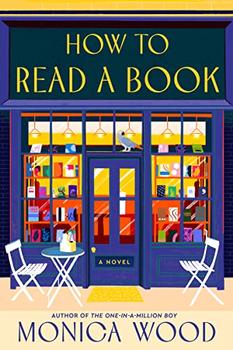Book Club Discussion Questions
Want to participate in our book club? Join BookBrowse and get free books to discuss!
Please be aware that this discussion guide will contain spoilers!
-
Violet has spent two years in prison and yet she retains a sense of innocence: "I move along with the other people ... memorizing my route so I can get back, what if I can't find my way back?" Why is she not more street-hardened by her experience?
-
Early on, Harriet observes: "Once Sophie left for good, this—this dusty quiet— would once again become the sound of evening." Does this imminent "quiet" affect Harriet's desire to help Violet? Might she have acted differently had Sophie decided to stay?
-
Of his current job, Frank observes: "His demotion to handyman felt like cool air
whooshing through his body." After a career as a professional machinist, why is
this minor bookstore job such a joy?
-
The novel features many instances of generational miscommunication, as when Baker warns Frank off ordering flowers, or when Sophie unapologetically googles Harriet's students. Sometimes the generation gap is comical, sometimes poignant, sometimes all too recognizable. In what ways did the multigenerational cast of characters affect you as a reader?
-
Did you notice all the parent/child relationships in this novel? Violet and her mother; Harriet and her daughters; Frank and his daughter; the incarcerated women and their children. How do these relationships help us understand the characters? Do they have anything in common as parents?
-
Thinking of Misha, Violet observes: "My theory is that all humans secretly long for the mother they always wanted. This longing turns half of us into resentful babies who didn't get properly mothered, and the second half into surrogate mothers for the first half." Is Violet projecting here, or is this a truth you recognized as true as soon as you read it? Were there other observations that struck you in that same way?
-
Seeing Violet for the first time, Frank "plummeted into the ditch of memory." How did this happen so fast? What does this incident in the bookstore show us about how memories work, especially those we try to suppress?
-
In all of Monica Wood's novels, characters are shown at work. How do you think
seeing Frank, Harriet, and Violet at work deepens our sense of who they are?
-
Though she doesn't quite know it, Violet is on a journey of self-forgiveness. How does working with the parrots contribute to that journey? How do animals in general contribute to our sense of who we are?
-
Were you aware of avian-cognition research before meeting Ollie and his colleagues? Were there other things you learned by temporarily living these characters' lives?
-
How do you explain Dr. Petrov's overwhelming influence on Violet? What does
she need that he provides?
-
When Frank and Harriet meet, they have an entire life behind them, plenty of mileage on their bodies and on their psyches. How does this affect their budding relationship? How is "old" love different from "young" love? How is it the same?
-
Violet tells Misha, "The writer writes the words. The given reader reads the words. And the book, the unique and unrepeatable book, doesn't exist until the given reader meets the writer on the page." What life experience did you, the given reader, bring to this book that made it exist?
-
In one of the final scenes, Violet's prison experience returns to her in a profoundly different light. How does her interaction with Dawna-Lynn demonstrate how Violet has changed since her release?
-
At the end, when you realize that Violet has been teaching us not "how to read
a book" but how to read this book, what did you think?
For the full book club kit please refer to the publisher's page.
Unless otherwise stated, this discussion guide is reprinted with the permission of Mariner Books. Any page references refer to a USA edition of the book, usually the trade paperback version, and may vary in other editions.
